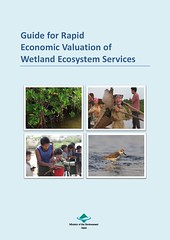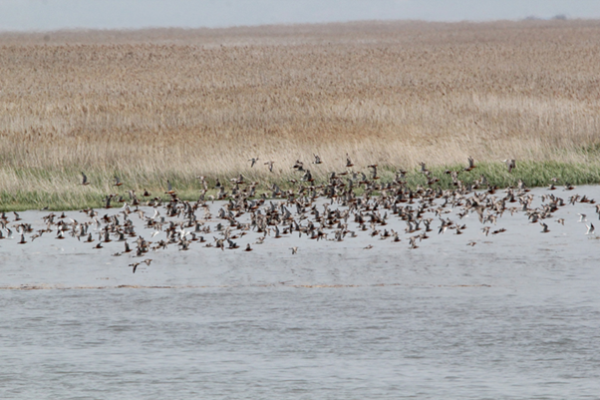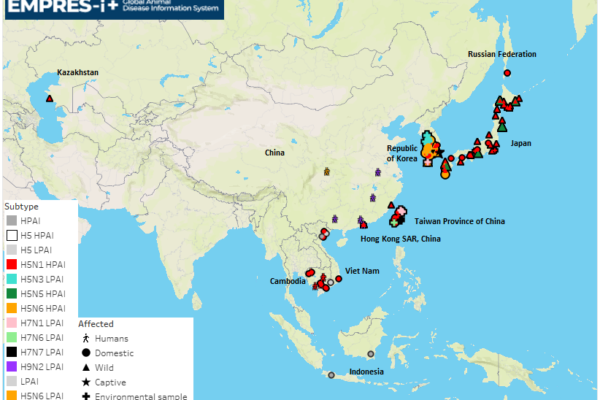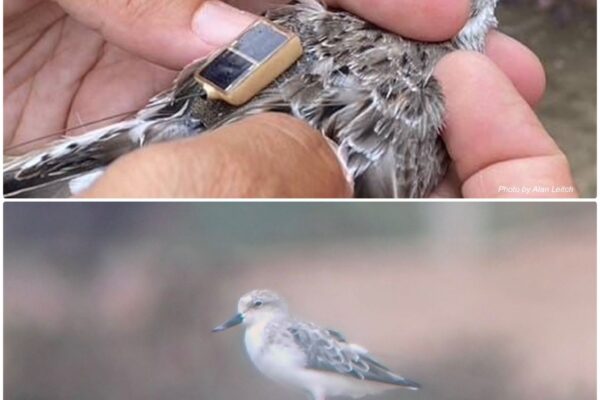Kaori Tsujita, Ministry of the Environment, Japan

Ecosystem services are the benefits that people receive from nature and we depend on the services to produce our food, regulate our water supplies and climate, and protect us from extreme weather. We also benefit in less obvious ways such as from spiritual experience and recreation enjoyment. Despite their importance, ecosystem services are consistently undervalued in conventional economic analyses and decisions.
The Ministry of the Environment, Japan (MOEJ) and the contractor, BirdLife International Tokyo together with the partner organizations, such as Biodiversity and Nature Conservation Association (BANCA) in Myanmar and Viet Nature in Vietnam, have conducted economic valuations of ecosystem services provided by two wetlands in Myanmar and in Vietnam to raise awareness of how important the wetland ecosystem services are for people. After completing two case studies, a simple guide for valuing wetland ecosystem services for non-experts was compiled including the lessons learnt of the two cases.
Moeyungyi Wetland [EAAF119], Myanmar
In 2014 the economic value of the major ecosystem services provided by Moeyungyi Wetland, the first Ramsar site in the country, was estimated as 22.1 million USD per year including water use, flood protection function, harvested wild goods (fish and food for domestic animals), rice production, and nature-based recreation. The value of global climate regulation from the carbon stored in the wetland was estimated as 91.6 million USD. In the case of land use change at Moeyungyi wetland, increasing rice cultivation may impact on some of the services the wetland currently provides such as global climate regulation and water quality.
Red River Delta, Vietnam
In 2015, a study of Thai Thuy Wetland in the Red River Delta Region in Vietnam valued the major ecosystem services at 15.0 million USD per year, including harvested wild fish and shellfish, aquaculture, salt production, and disaster risk reduction. The one-off stored value of climate regulation from the carbon stored in the wetland is valued as 60.3 million USD. At this site it is important to note that the surveys did not include the sustainability of resource use and further exploration of the trade-offs involved in aquaculture and other ecosystem services could reveal impacts of this practice on other wetlands benefits.
At both sites, existing data and simple interview surveys were conducted using a simple method based on TESSA (Toolkit for Ecosystem Service Site-based Assessment).
Since only some of the major ecosystem services were selected for the surveys, and this was a very rapid analysis, these economic values are minimum estimates only and should be interpreted with caution. The value of wider biodiversity and ecosystem functions such as water purification were not covered in the valuation so these initial studies capture only some the value. Also, it is uncertain that the estimated values would be maintained at the same level in future since the surveys did not include the sustainability of resource use, as well as the monetary value presented will vary year by year along with the market situation. It may also be important as a second step, to assess what the impact of land use change would be on the provision of these wetland services as this will reveal trade-offs between ecosystem services and between different groups of beneficiaries which helps to inform decision-making at the sites
Despite the above caution, the result showed that these wetlands provide multiple benefits, some of which can be estimated using economic valuation. The aim of these studies is to help people to recognize ecosystem services better and to encourage wise use of the wetlands. MOEJ and BirdLife International have developed a freely available simple guide for valuing wetland ecosystem services for non-experts using the experiences of the two case studies. The guide can be download from the following link.
For more information, please click the following links:




